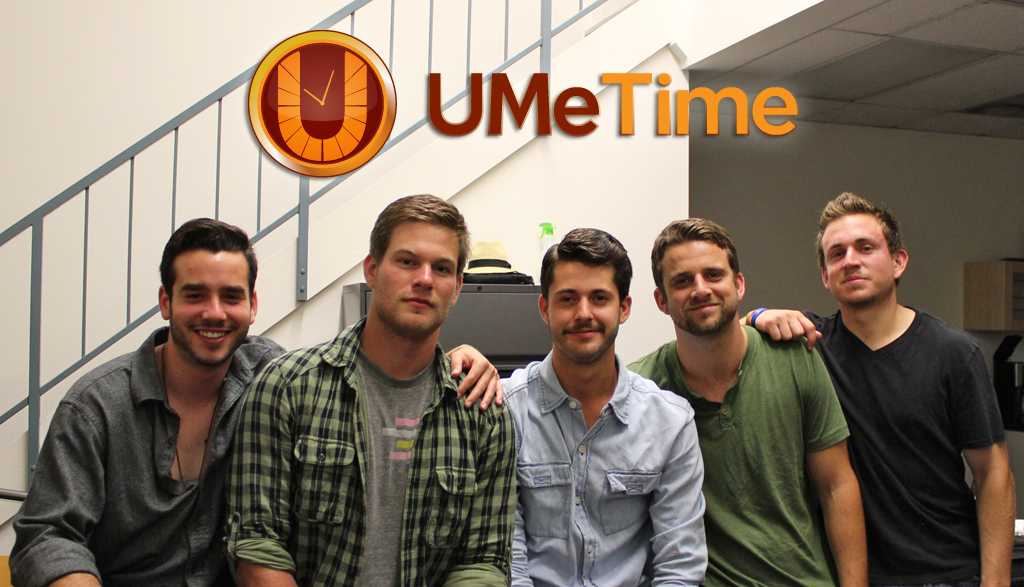By Bianca Moragne
The future of the daily deals industry is being transformed and piloted by a fresh new-to-Austin startup looking to amplify brand loyalty for local merchants.
Daily deals services—like Groupon, LivingSocial and Scout.me—took off in the turbulent deals market because they provided a little something for everyone, but by locking merchants into agreements and taking a hefty cut of the sales, deals-fatigue afflicted consumers who’ve since turned sour to the idea, says Robert Quigley a senior journalism lecturer of an app development course at The University of Texas.
But where evolution meets personalization, UMeTime hopes to revolutionize the business by offering local deals specific to downtown Austin and UT.

Created by Los Angeles college friends and entrepreneurs Tim Rothwell and Brett Berman, UMeTime’s mobile app was crafted in their hometown to benefit the local community, by primarily supplying daily drink and food specials. Other deals applications create disconnect between businesses, users and the types of deals offered, says co-founder Rothwell, who saw a need for the technology.
According to a LoyaltyPlus study by consulting firm Loyalogy, Inc. short-term specials give merchants a temporary revenue boost, while the development of tried-and-true customers will retain a loyalty base and increase sales in the long-term. UMeTime says it allows businesses to thrive by bridging a connection with local consumers. Businesses that use the app are able to reach out to local customers when they feel necessary. Whether there’s a need to sell inventory or fill empty tables, the business is in full control of their offers. “UMeTime as a company, we really want to become apart of Austin and integrate ourselves within the community,” Rothwell says. “We want to be apart of Austin’s growth.”
Before relocating to Austin, UMeTime partnered with charities in the Los Angeles area to raise money and awareness for various causes, including Heal the Bay, a beach cleanup organization. UMeTime says it hopes to continue connecting with local charities here in Austin.

Located in a converted apartment in downtown Austin, UMeTime’s makeshift office exhibits a long whiteboard with details of 125 local restaurants, bars and shops currently partnered with the company. A core team of six close-knit associates launched the company in February of 2013.
In 2011, Austin was ranked as “the U.S. market that is most conducive to the creation and development of small businesses,” according to the 2011 The Business Journals On Numbers Economic Index ranking. “Austin has a really great startup community and having that atmosphere here helps when trying to get on the ground running. It seems like a lot of good ideas start here,” says Quigley. “Is it better to start up here or in Silicon Valley? That depends on what kind of tone you want to set for your app and company.”
“Austin is business friendly and there are so many benefits to moving here,” says UMeTime co-founder Brett Berman. “One of those benefits being the awesome environment for startup success, where we can all help each other build something great rather than competing against each other.” UMeTime says it hopes to take advantage of the Austin startup scene at the 2013 SXSW Interactive, an Austin technology conference and spin-off of the 26-year-old music and film festivals, by running exclusive deals geared towards participants.
Last year, the event brought about 20,000 technology leaders, cutting-edge developers, investors and early adopters from all over the world to Austin. “There have been apps that were the most used at South By Southwest that later never took off so it’s not guaranteed success,” Quigley says. “It’s a bit of a circus, but if you can capture that ring for a little while you can really boost your product. If I had an app and thought it was a really big deal, this is where I’d want to launch it.”
UMeTime will also be featured in the SXSW Startup Crawl, a shuttle bus tour of downtown-area startups, the night before the conference. Downtown hotels and restaurants are partnering with UMeTime during the festival to promote exclusive deals to users.
The business can target local consumers with “Blastout” deals, created by the merchant at their convenience and sent out immediately to users within a two-mile radius. Businesses can utilize a video component in the blastouts to showcase specials running throughout SXSW. “Businesses have the ability to create short 30-second videos themselves but we’ve actually gone out to create, well-done, quick snippets for them. It’s like a mini commercial, or that extra sale, that we can provide,” says Kyle Nathanson the UMeTime sales and campus marketing director.
The free-targeted marketing is another way the company tries to ensure merchants are their main priority. “What we’re doing is something the industry hasn’t seen before. Local merchants are our number one customers and we’ve built this technology for them to drive sales and customers in the door,” Rothwell says. He points out that UMeTime doesn’t charge businesses until a customer makes a purchase by redeeming their deal and then takes 25 percent of the revenue from the deal and charges $1 for delivering a customer during blastouts.













































